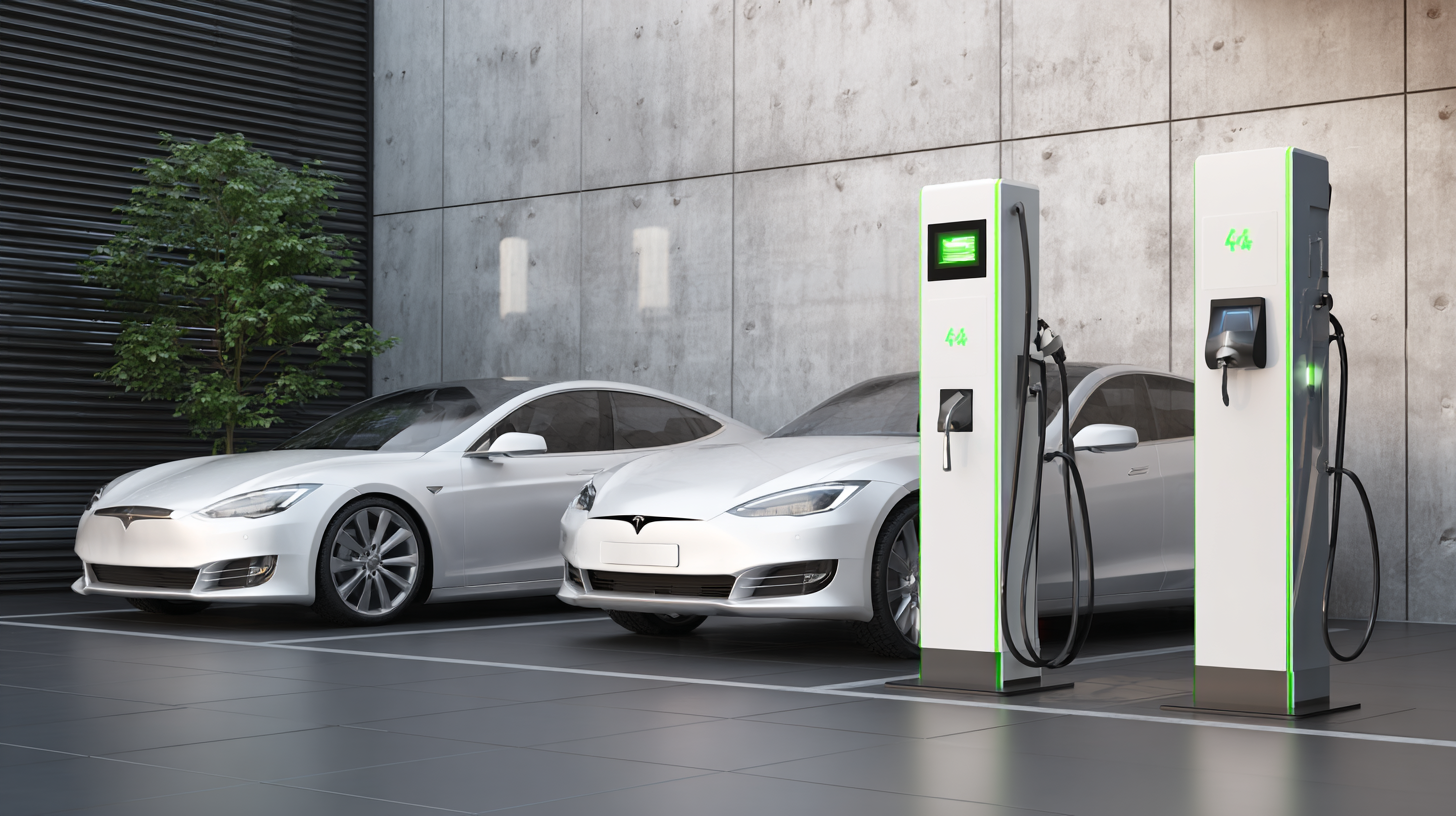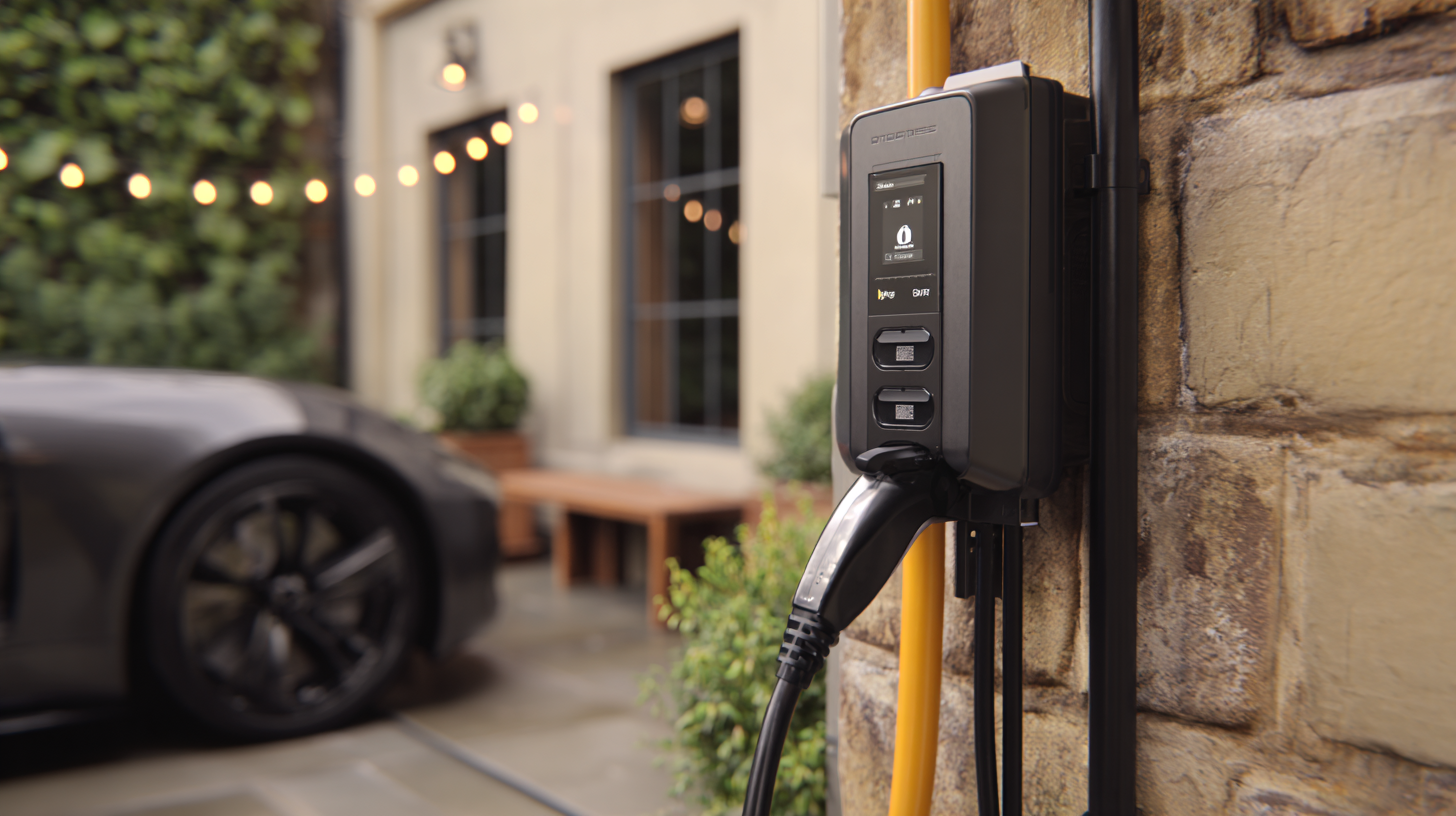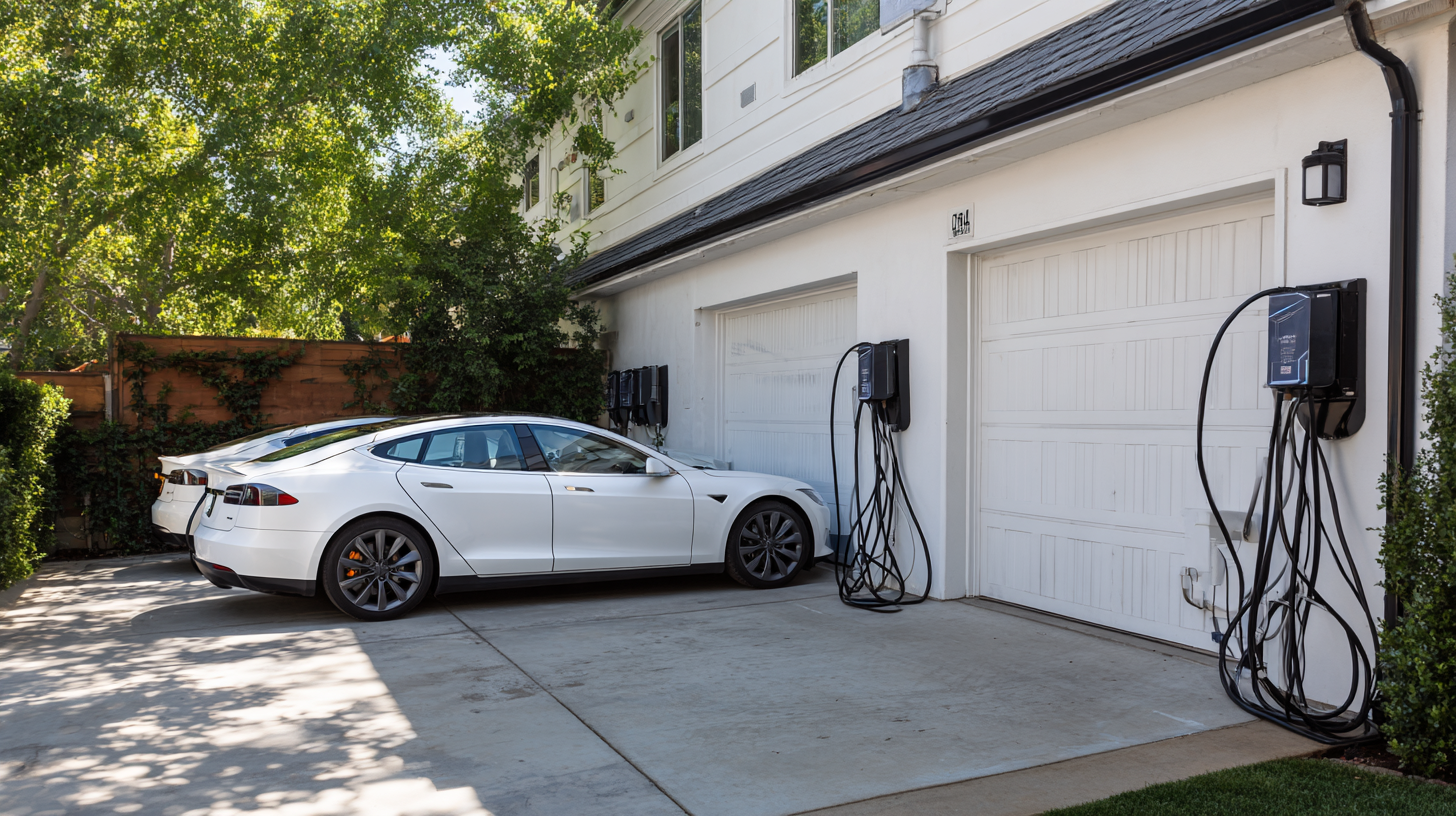As the electric vehicle (EV) market continues to expand rapidly, with global sales expected to reach over 26 million units by 2030, the demand for efficient EV home chargers has never been more critical. According to a recent report by the International Energy Agency, the number of electric cars on the road could surpass 100 million by 2030, highlighting the urgent need for innovative charging solutions. In this context, China emerges as a leading provider of high-quality manufacturing capabilities, delivering superior products that cater to the diverse needs of EV consumers worldwide.

As homeowners seek convenient and reliable charging options, the development of advanced EV home chargers that optimize efficiency and reduce charging times will play a pivotal role in promoting widespread adoption of electric vehicles, ultimately contributing to a greener and more sustainable future.
As electric vehicle (EV) adoption accelerates, innovative technologies are transforming home charging options, making them more efficient and user-friendly. By 2025, we expect to see advancements that significantly enhance the speed and convenience of charging EVs at home. Smart charging systems that integrate with home energy management platforms will allow users to optimize charging times based on utility rates, renewable energy availability, and personal schedules, ultimately reducing costs and environmental impact.
Another promising development is the emergence of vehicle-to-grid (V2G) technology, which enables EVs to act as energy storage units. This innovation not only helps balance energy consumption but also empowers EV owners to sell excess power back to the grid, creating additional revenue streams. Moreover, wireless charging solutions are on the horizon, eliminating the hassle of plugging in and making the EV charging experience as seamless as possible. With these innovative technologies shaping the future of home charging, EV owners will enjoy greater flexibility and efficiency in their daily routines.
| Charging Technology | Charging Speed (kW) | Estimated Charge Time (Hours) | Smart Features |
|---|---|---|---|
| Level 1 Charging | 1.4 kW | 8-20 hours | Basic Timers |
| Level 2 Charging | 7.2 kW | 4-8 hours | Smartphone App |
| DC Fast Charging | 50 kW | 0.5-1 hour | Remote Monitoring |
| Wireless Charging | 3.6 kW | 4-6 hours | Automated Connections |
As electric vehicles (EVs) continue to gain popularity, the demand for smart charging solutions is becoming increasingly essential. Exploring innovative charging technologies that combine convenience and efficiency is crucial for both consumers and the environment. A recent launch of an ultra-fast EV charging hub underscores this trend, allowing for simultaneous charging of 32 electric vehicles at speeds that significantly reduce downtime for users. This type of infrastructure not only supports the growing number of EVs on the road but also offers a seamless charging experience that caters to the needs of busy lifestyles.
Additionally, the introduction of portable EV chargers that emphasize efficiency, such as compact models designed for easy transport, further exemplifies the shift towards smart charging solutions. These devices are engineered to provide fast energy replenishment on the go, fulfilling the needs of drivers who require flexibility without sacrificing performance. As the landscape of EV charging continues to evolve, the integration of smart technology in both stationary and portable chargers promises to enhance the overall user experience, making electric vehicle ownership more practical and sustainable.
The increasing popularity of electric vehicles (EVs) has prompted a significant shift in how we approach home charging solutions. Central to this transformation is the incorporation of renewable energy sources, which not only enhances the efficiency of charging but also aligns with global sustainability goals. Utilizing solar panels, for instance, allows homeowners to harness sunlight to generate electricity, reducing dependence on traditional power grids and lowering carbon footprints. This synergy between EV charging and renewable energy not only ensures a cleaner energy cycle but also offers substantial savings on electricity bills over time.
Moreover, integrating energy storage systems, such as home batteries, further amplifies the benefits of renewable energy in EV charging. These systems can store excess energy produced during peak sunlight hours, enabling homeowners to charge their vehicles during off-peak times when electricity rates are lower. Additionally, this setup ensures that EVs can be charged even during cloudy days or at night, thus enhancing the reliability of home charging solutions. As communities continue to transition towards renewable sources, the role of sustainable energy in powering electric vehicles will become increasingly critical, positioning home charging as a cornerstone for a greener future.
As electric vehicle (EV) adoption grows, homeowners are increasingly looking for efficient charging solutions to optimize their energy use. Home Energy Management Systems (HEMS) offer innovative ways to maximize the charging speed of EVs while managing household energy consumption. By enabling intelligent scheduling and load balancing, HEMS can charge your EV during off-peak hours when electricity costs are lower, ensuring you have a fully charged vehicle without straining your home’s energy supply.
Moreover, HEMS can integrate with renewable energy sources, such as solar panels, to provide an eco-friendly charging solution. By prioritizing energy from the sun, homeowners can significantly reduce their reliance on the grid and minimize costs associated with charging their EVs. Real-time monitoring also allows users to adjust settings or demand response strategies to ensure that charging speeds are optimized based on available energy resources and immediate household needs, thus fostering a sustainable and efficient energy ecosystem at home.

As electric vehicles (EVs) become increasingly popular, homeowners are looking for innovative ways to enhance their charging experience. Integrating home automation into your EV charging setup not only makes the process more efficient but also ensures that it fits seamlessly into your daily routine. By automating your charging schedule, you can take advantage of off-peak electricity rates, reducing costs and maximizing sustainability.

One effective tip is to link your EV charger with your smart home system. This allows for remote monitoring and control through your smartphone, providing real-time insights into your charging status and energy consumption. Moreover, consider setting up automated notifications that alert you when your vehicle is fully charged or if there are any issues with the charging process.
Additionally, using energy management systems can optimize your home’s electricity usage. For instance, you can program your charger to operate during specific hours, ensuring that it doesn’t compete with peak household energy demands. By leveraging these smart solutions, you can enhance your EV charging experience while contributing to a more energy-efficient home.








